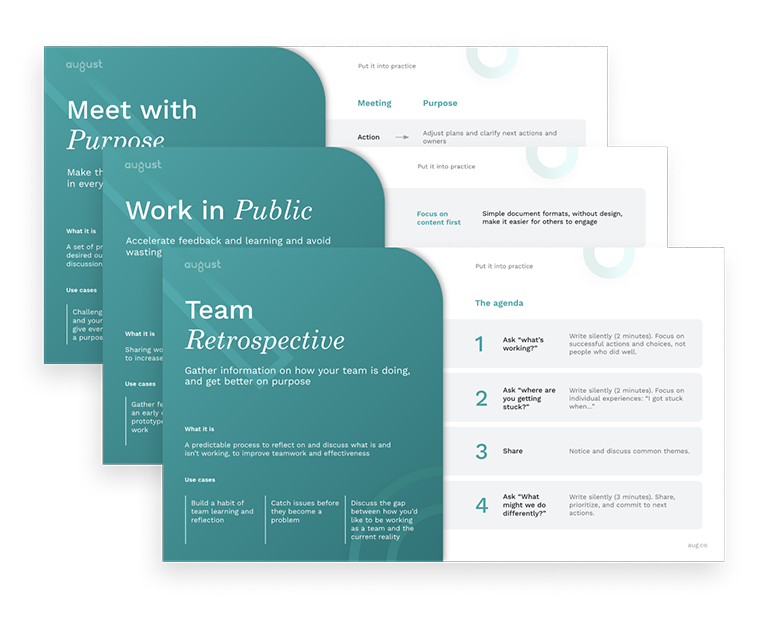Published November 22, 2022 | Updated August 3, 2023 | 3 minute read
This month we held our second Equity+ Roundtable, in which we gathered diversity, equity & inclusion leaders from a variety of organizations to connect, commiserate, and share knowledge around this work.
Our conversation revolved around a core conundrum of DEI work: How can we create deep change within systems that are designed to resist it? Or, to paraphrase Audre Lorde, how can we dismantle the master’s house, when the master’s tools are all we have to work with?
Our advice to each other ranged from incremental change to “burn it all down,” and came to rest on a core point that also resonated in last month’s roundtable: If we want to scale equity and inclusion, we have to be able to measure its impacts.
What gets measured is what matters.
Data empowers storytelling, which is crucial for scaling and buy-in. But too often, we start with the story we want to tell, design a solution to meet it, and then leverage the data to validate the story in retrospect.
A more effective, and equitable, approach would be to look at data first, identify the problem you want to address, and then design a solution.
The storytelling component should come last, and it should come in the form of sharing your most successful solutions internally to educate and encourage buy-in, and externally with other companies who might benefit from trying it for themselves. Don’t use data retroactively to manifest a story - use it now to diagnose a problem you want to solve going forward.
We also need better data transparency. “Diversity” has no one universal definition. Some organizations might use “diversity” statistics that, upon reading the fine print, turn out to refer only to white women, or professional backgrounds, or certain geographic origins. We can’t assume every data point about “diversity” is equitably addressing the dynamics of marginalization.
At the same time, we can’t try to measure everything all at once. It can help to add time to the equation. Resist the capitalist urge to give everything a deadline, and understand that DEI work spans decades and generations.
Choose a focal point and let the benefits ripple outward.
Although the scope of DEI work is vast and complex, we’ll only be frozen in place if we insist on trying to fix it all at once. The best solutions are the ones that are active right now, even if they’re only tackling one piece of the puzzle.
The complexity of DEI challenges can be overwhelming, especially to leadership. But complexity in the problem doesn’t mean there aren’t immediately-available solutions for improvement. It’s enough to work towards measurable impact in small ways, and then to scale the best successes. Focused effort in one area will ripple outward and benefit others.
For example, promoting more women to leadership will ripple outward towards a more inclusive company culture. Developing BIPOC talent will ripple outwards towards a more diverse talent pipeline. Addressing the scheduling needs of working parents will ripple outwards towards greater flexibility for all. DEI begets DEI. Just pick somewhere to start.
“Moral imperatives” and “business benefits” alone aren’t enough to incentivize change.
Few leaders volunteer to relinquish their power and privilege for the greater good. And the proven business benefits of DEI aren’t enough to motivate companies to act.
Morality and strategy alone can’t drive structural change. We need to also tie DEI to financial levers like compensation and bonuses, and link DEI outcomes to the material self-interest of those in power.
At the same time, we need to be cautious about wielding laws, rules and policies as a replacement for culture-building. These are white supremacist mechanisms that often backfire against their own intended mission.
DEI belongs in performance reviews and handbooks, but also in daily team and company-wide practices. We need to take DEI out of its niche, and infuse it into every department, every initiative, every aspect of company life.
Focus on solutions.
Our group expressed a sense of relief at the opportunity to authentically connect with fellow change-makers, outside the constraints of corporate life. It can be draining to maintain the sheen of optimism required of DEI leaders, and to work patiently within systems that often clash with our personal politics!
We welcomed the opportunity to be unapologetically honest in our analysis of the issues. And we consciously chose to focus on what we can do, rather than what we can’t, in the face of these big obstacles.


.jpg)






